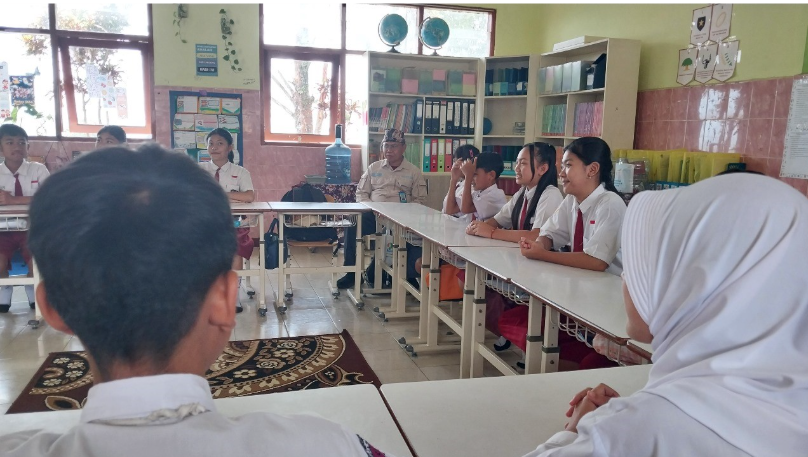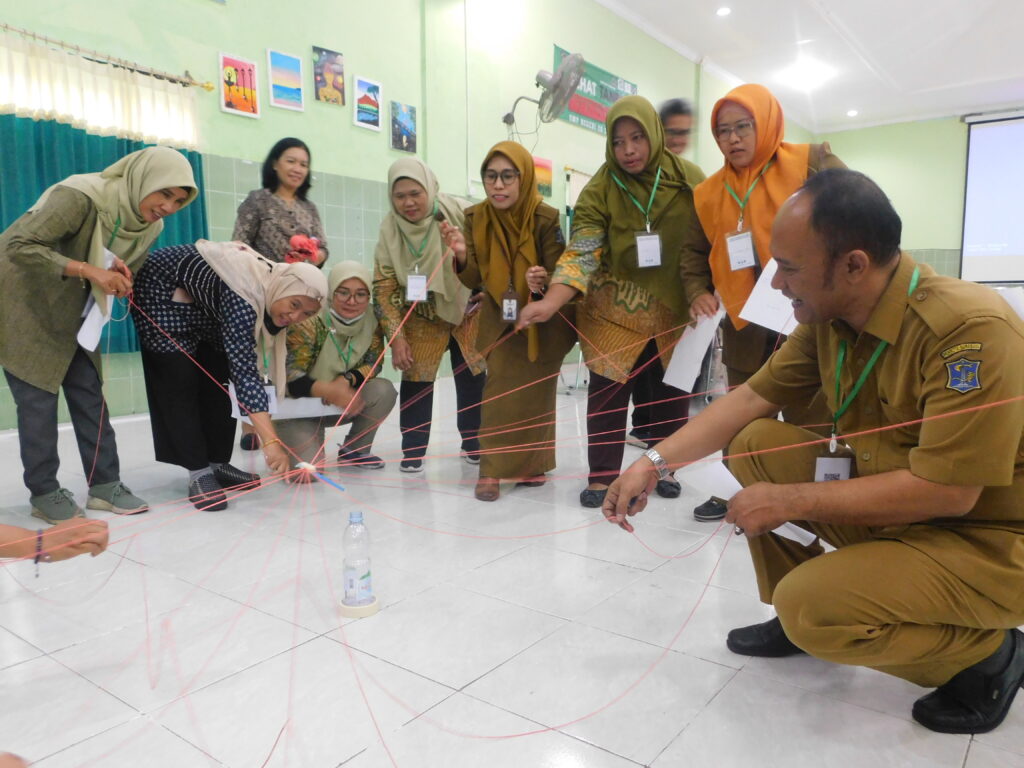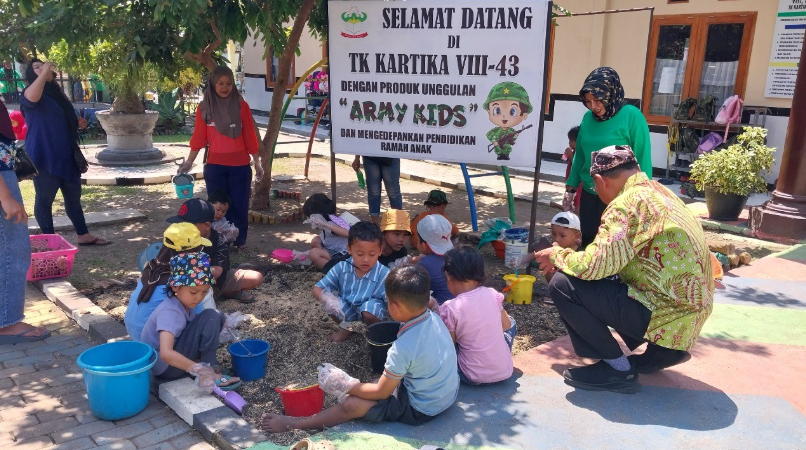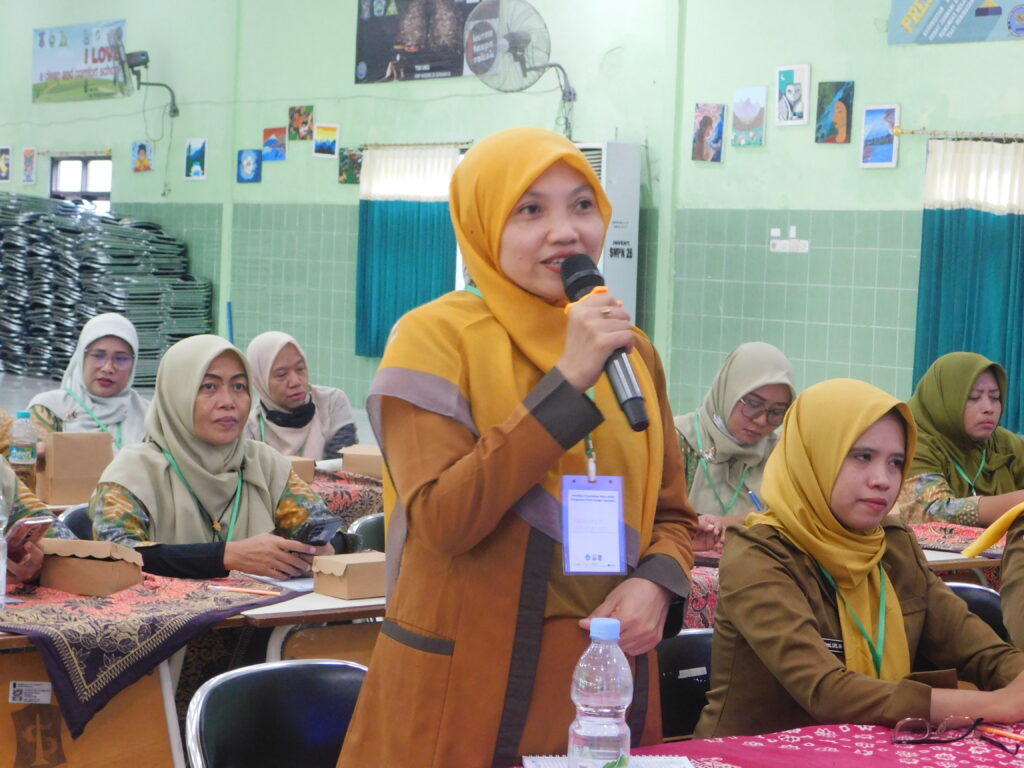
The Ethics Education Fellowship is transforming classrooms, empowering students, and contributing meaningfully to Indonesia’s Pancasila Student Profile (P5). At the forefront of this movement are the Fellows, organizing training workshops, practical guides, and online modules to support teachers in integrating ethics education into everyday learning.
Launched in 2022 by Arigatou International, the Guerrand-Hermès Foundation for Peace, KAICIID, the Higher Committee of Human Fraternity, and UNESCO, the Fellowship has reached thousands of students across six countries. In Indonesia, its second phase began in October 2024, aiming to scale its impact and build sustainable structures for ethics education across the nation.
The second phase of the Fellowship in Indonesia now includes 574 schools and is expected to reach over 90,688 students, a tenfold increase from its initial reach. Workshops, online learning, and collaborative meetings have empowered hundreds of teachers to implement transformative approaches. Technology and digital tools have also enabled the program to reach more remote and underserved areas, ensuring equitable access.

With support from the Ministry of Education and the National Commission for UNESCO, Indonesia has embedded ethics education within its education goals, aligning it with the Pancasila Student Profile. The Ethics Education Fellowship complements the P5 project by providing teachers with the skills, tools, and mindset needed to nurture holistic learners, students who are not only academically competent but also morally grounded and socially responsible.
A visit to Torongrejo School highlighted this integration in action. Through classroom observations and interviews with teachers, students, and administrators, it was evident that the combination of ethics education training and P5 implementation had elevated the school’s ability to foster ethical reflections. Classrooms became more inclusive, learning was more collaborative, and the school community more connected.
Educators across the participating schools reported a marked shift in classroom dynamics following the integration of ethics education. Students are showing increased openness, empathy, and collaboration, especially among those from different religious, cultural, and socioeconomic backgrounds. Teachers have observed stronger bonds of solidarity, mutual respect, and a sense of shared responsibility for the well-being of others.

Many students are also taking greater initiative in solving classroom and school-wide challenges. Teachers report that children now listen more attentively to each other, offer support to peers with special needs, and engage more actively in shaping group norms and class agreements. As one teacher noted, “We no longer just teach ethics; our students are living it.”
The transformation hasn’t been limited to students. Teachers themselves describe their relationships with students as becoming more open and respectful. Many report a renewed passion for teaching, enjoying more participatory, student-centered lessons and creating classroom environments that feel safe and inclusive.
“Ethics education offers many benefits, particularly in creating a child-friendly learning environment,” said Mrs. Nunung Herawati, a participating teacher. “It’s not just about what we teach, but how we teach, focusing on the process and respecting the dignity of every learner.”
Mrs. Oni Arlitasari echoed this sentiment, saying, “Through the training, I learned how to integrate children’s rights into the learning process and ensure they are respected and fulfilled.”
One of the most tangible and inspiring outcomes of the Fellowship has been the growth of environmental character development projects in schools. These initiatives empower students to turn lessons into action.

Schools are cultivating land to grow vegetables, fruits, and legumes, often transforming unused spaces into school gardens. These gardens not only strengthen students’ sense of responsibility and connection to nature but also deliver economic benefits. Produce is sold directly or turned into ready-to-eat snacks for resale, generating income for school activities.
Waste management has also taken center stage. Students sort and process waste into compost or craft materials. These projects give students hands-on experience with sustainability while deepening their understanding of ethical choices in the real world.
In March 2025, the Ministry of Education convened a final evaluation workshop, bringing together educators, policymakers, and civil society actors to reflect on successes and chart a course for the future. The session reinforced a collective commitment to institutionalize ethics education as a cornerstone of national character development.
By putting ethics at the heart of education, Indonesia is contributing to building peaceful, inclusive societies and advancing SDG Target 4.7, which calls for education that fosters global citizenship, sustainability, and human rights.
